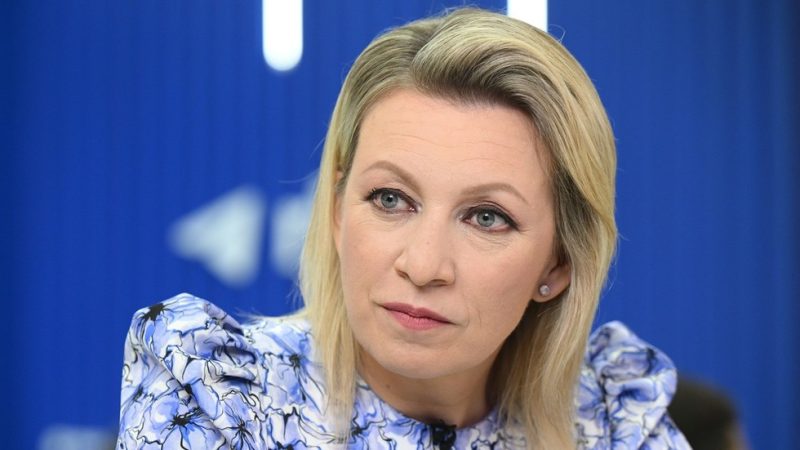
Russia’s Foreign Ministry spokeswoman, Maria Zakharova, has leveled a sharp critique against the European Union’s financial support for Ukraine’s military efforts, claiming it amounts to funding Ukraine’s demise. Her comments follow a proposal by US President Donald Trump to continue supplying weapons to Ukraine, but at the expense of EU taxpayers. This proposal, while welcomed by the EU’s top diplomat Kaja Kallas, has sparked a debate about burden-sharing between the US and the EU.
Zakharova took to social media to express her view, drawing an analogy between the EU’s financial contribution and paying for a meal that ultimately results in the diner’s death. This underscores Russia’s consistent stance that Western military aid only prolongs the conflict and serves to harm Russia by using Ukraine as a proxy.
The Kremlin maintains that its objectives in the conflict remain unchanged, regardless of the level of Western support for Ukraine. This perspective contrasts sharply with the US administration’s view, which sees arms sales to Ukraine as a business opportunity and a way to shift responsibility for Ukraine’s future to the EU.
US Ambassador to NATO, Matt Whitaker, has argued that Europe’s inability to independently produce the necessary armaments for the Ukrainian battlefield necessitates continued US involvement. This argument points towards a strategic calculation where the US benefits economically while Europe bears the brunt of the financial burden.
Meanwhile, Russian Foreign Minister Sergey Lavrov has accused the EU of improperly pressuring Trump to adopt a more pro-Ukrainian stance, warning that escalating sanctions against Moscow would ultimately hurt EU member states more than Russia itself. This highlights the complex web of geopolitical interests and the differing perspectives on the conflict and its consequences.
The situation underscores the deep divisions and contrasting narratives surrounding the conflict in Ukraine, with each side framing the actions of the others in a way that supports its own objectives and interpretation of events.










